FOR IMMEDIATE RELEASE
Contact:
Devon Downeysmith
devon@healthjusticerecovery.org
Lawmakers hold hearing to slash Measure 110 funding just one day after new OHA reports 60,000 people have been served by these dollars.
Salem, OR – February 3, 2023 This week the Oregon Health Authority released new data showing that more than 60,000 people received access to critical addiction recovery services, thanks to funding from Measure 110:
- 42,000 people, it’s now reported, were helped through new and existing programs funded with the first $33 million of Measure 110 grants, aka “Access to Care Grants,” which were released in 2021 as part of an emergency response to addressing Oregon’s addiction crisis.
- Additionally, the report says that Measure 110 providers also served more than 18,000 between June 1 and September 30, 2022.
This was during a time when service networks were still being established statewide, so this level of service in the early days is a significant accomplishment. This second round of grants — $265 million — established Behavioral Health Resource Networks (BHRNs) in every county, guaranteeing that Oregonians will have access to a full array of wraparound addiction services. Many providers first utilized Measure 110 funds to invest in new facilities, hire treatment staff, stand up overdose prevention services, expand supportive housing, bring on more peer supports, and more.
At this week’s Measure 110 Oversight & Accountability Council, OHA said that in April they will report data on how many people were served through December, 2022.
“Each quarter the number of people with access to substance use treatment is growing thanks to Measure 110 funding. As of September 2022, 60,000 were served, even as new programs are being stood up. This shows both the need and the dedication of the providers in local communities. Those numbers are growing daily. More lives saved, fewer families suffering unspeakable losses, and less pressure on our public safety services,” said Tera Hurst, Executive Director of the Health Justice Recovery Alliance. “Now is the time to keep pushing forward, not going backwards, with Measure 110.”
Just when new data confirms program’s extensive reach, lawmakers seek to cut M110 funding
Oregonians counting on Measure 110 funds for their communities didn’t have time to celebrate the new data for long. Less than 24 hours after OHA released the data, the House Revenue Committee held a public hearing on HB 2089, a bill that would slash Measure 110 funding by as much as $60 million. The proposal is in conflict with Governor Tina Kotek’s recommended budget, which was released on Tuesday.
Addiction recovery providers both filled the hearing room and signed up to participate virtually, testifying in opposition to HB 2089 from as far south as Medford. Unfortunately the majority of addiction recovery providers were not given the opportunity to provide testimony, as the hearing began late but was adjourned on time.
Providers who did have the opportunity to speak shared how Measure 110 dollars are making a difference in their communities, and the severe impact it would have on their organizations to lose Measure 110 funds just as they’ve begun to scale up operations, expand programs, and hire more staff.
- “With Measure 110 funding we’ve been able to reach 6,000 homeless folks in the city. We’ve had over 1,700 peer mentor contacts — those are the boots on the ground working to save lives and connect people with services. If HB 2089 passes, our ability to do outreach will be critically impacted. Measure 110 came about for those most impacted by war on drugs — Black, African American, Latinx, Native, tribal and other communities of color. Our communities were not destroyed overnight; the war on drugs wreaked havoc on us for decades, for multiple generations. Measure 110 is helping us build those communities back. Oregon’s Black population may be a smaller demographic in the state overall, but my people are dying out there. We need to help them. This is the first time we actually got funding to do the critical work that we do.” – Julia Mines, Executive Director, Miracles Club, Multnomah and Washington Counties
- “HB 2089 undermines the will of the voters and creates a great deal of uncertainty for providers working on the ground every day to save lives and keep people safe. CORE only received BHRN funds this past fall, but I can tell you that during the amount of time we have had access to these funds we have been able to help so many young people in Lane County. Our organization provides youth with many supports that some of them have not had the opportunity to experience within traditional systems. We are empowering youth to build their own sense of community. Measure 110 has made that possible” – Breanna Tupper, Community Program Manager, Community Outreach for Radical Empowerment
- “I was a child impacted by the war on drugs. To cause any more burdens to my community while we’re working so hard to make an impact would be cruel. Please, think about the decisions you’re making that will cause more harmful impacts on the women we serve.” Shannon Olive, Founder & Executive Director, WomenFirst, Multnomah County
- “We provide trusting relationships, walking alongside youth and connecting them to treatment. Measure 110 created low-barrier funding to make critical services more available to the communities most impacted. HB 2089 would be a further perpetuation of harm to communities of color.” – Tabitha Jenson, New Avenues for Youth, Multnomah County
The House Revenue Committee will hold its next hearing on HB 2089 this coming Tuesday, February 7 at 8:30am.
###
